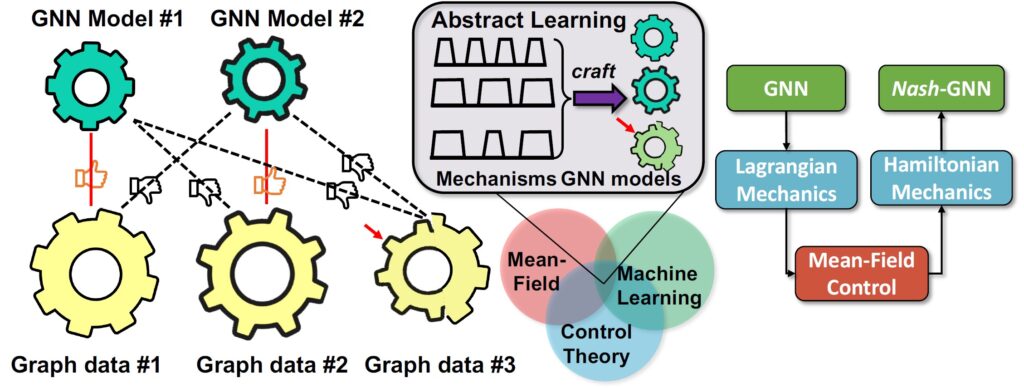
- This event has passed.
FRG Informal Talk Series, Prof. Guorong Wu (UNC)
September 20, 2024 @ 3:00 pm - 4:00 pm

Professor Guorong Wu
Department of Psychiatry, UNC School of Medicine
Title: Graph Neural Network Is A Mean Field Game

Abstract: In current graph neural networks (GNNs), it is a common practice to apply a pre-defined message passing heuristics to all graph data, even though the stereotypical relational inductive bias (e.g., graph heat diffusion) might not fit the unseen graph topology. Such gross simplification might be responsible for the lack of an in-depth understanding of graph learning principles, which challenges us to push the boundary from crafting application-specific GNNs to embracing a “meta-learning” paradigm. In this work, we ratchet the gear of GNN another notch forward by formulating GNN as a mean field game, that is, the best learning outcome occurs at the Nash-equilibrium when the learned graph inference rationale allows each graph node to find what the best feature representations is for not only the individual node but also the entire graph. We formulate the search for novel GNN mechanism into a variational framework of mean-field control (MFC) problem, where the optimal relational inductive bias is essentially the critical point of mean-field information dynamics. Specifically, we seek for the best characteristic MFC functions of transportation mobility (controlling information exchange throughout the graph) and reaction mobility (controlling feature representation learning on each node), on the fly, that uncover the most suitable learning mechanism for a GNN instance by solving an MFC variational problem through the lens of Hamiltonian flows (formed in partial differential equations). In this context, our variational framework brings together existing GNN models into various mean-field games with distinct equilibrium states, each characterized by a unique MFC functional. Furthermore, we present an agnostic end-to-end deep model, coined Nash-GNN (in honor of Nobel laureate Dr. John Nash), to jointly carve the nature of the inductive bias and fine-tune the GNN hyper-parameters on top of the elucidated learning mechanism. Nash-GNN has achieved SOTA performance on diverse graph data including popular benchmark datasets and human connectomes. More importantly, the mathematical insight of mean-field games provides a new window to understand the foundational principles of graph learning as an interactive dynamical system, which allows us to reshape the idea of designing next-generation GNN models.
The talks will be both in-person at Chapman 435 Math Conference Room and on Zoom https://unc.zoom.us/j/97696635281